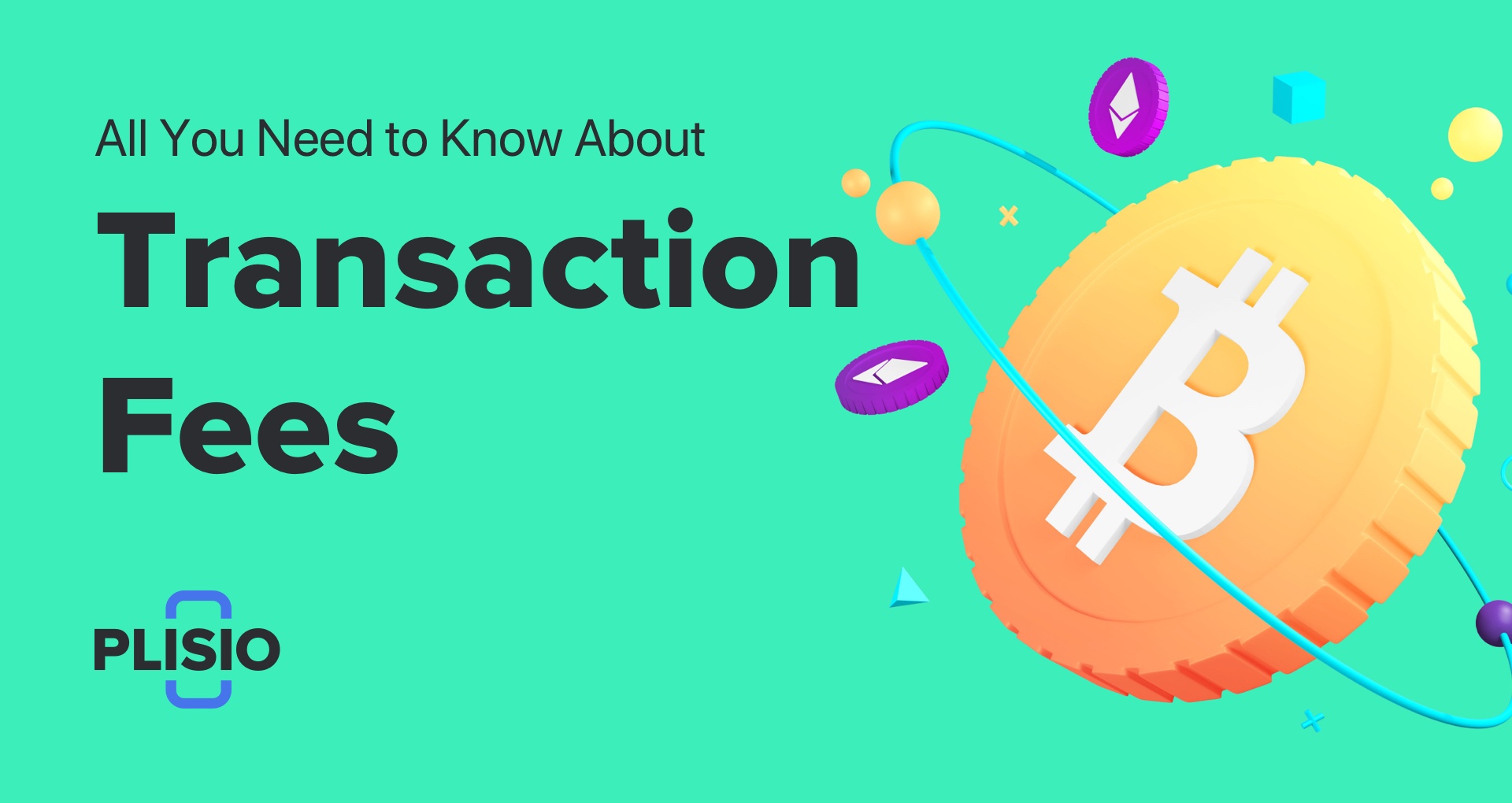All You Need to Know About Cryptocurrency Transaction Fees

When conducting business online, the fee problem can be a major obstacle, especially for cross-border payments. Those who don’t want banks to be in charge of their business transactions, fled to cryptocurrency. Cryptocurrency is a payment method that offers speed, transparency and, most of all, low fees. However, today crypto fees may be concerning for both business owners and investors - short-term investors suffer from the fee effect more often than long term investors as the fee size is different for each market stage or different cryptocurrencies in general.
If we take a look at all the blockchains, there are millions of transactions passing the networks every day. To facilitate all these transactions, some of the blockchains can impose high fees. These fees differ in their origin and size, but most of them still comprise trading fees.
In this article, we will find out what types of cryptocurrency transaction fees there are and how to avoid heavy fees in the future.
What is a transaction fee?
A crypto transaction fee is the amount of crypto needed for the blockchain to process the transfer of funds from one wallet to another. To process the transaction, computing or the network power is required, so a transaction fee goes to miners or stakers as a reward for their work to support the blockchain operation.
Why can fees be different?
Per second, the blockchains receive thousands of transaction requests, which result in heavy network load. Network load, in turn, slows down the transaction processing. To stimulate the miners and stakers to use more computing or network power and process some of the transactions prior to others, you pay a higher fee. For that reason, two transactions identical in amount may cost you different fees and, subsequently, have different processing time.
Let’s review what transaction fees there are.
Network Fees
Network fees, also known as blockchain fees, are the standard fees. Such fees are imposed for every cryptocurrency transaction on the blockchain.
As we stated above, network fees are miners and stakers’ rewards for supporting the blockchain operation. Blockchains have different structures - consensus mechanisms - which can be either Proof-of-Work or Proof-of-Stake blockchains.
Cardano and Solana’s networks, for instance, use the PoS consensus mechanism - a gas system, where users stake their crypto to provide the blockchain power. Bitcoin, in turn, has a PoW network, which network fees are based on the transaction size in bytes.
Smart Contract Fees
Smart contract cryptocurrency blockchains like Ethereum are a little bit different in terms of transaction fees in comparison to Bitcoin. The major difference is that on Smart contract blockchain transaction fee size is not an alternative. Such blockchains require more computing power to process transactions.
On the Ethereum blockchain, the computing power is assessed in gas units. There are no block size limits, there is a limit to how much gas can be in one block. As of today, the gas limit for a block is roughly 30 million. The ”heavier” the block is, the higher the gas price.
Cryptocurrency Exchange Fees
CEX and DEX charge users their own fees on transactions. Apart from the network fee users must pay, exchanges impose an additional trading fee for each transaction, even when withdrawing. Each exchange fee is different and usually such fees depend on the service quality and popularity.
It doesn’t mean that crypto investors or business owners must store their funds on centralized or decentralized exchanges only. A crypto payment gateway like Plisio, for example, is a great option to store, get paid or pay in crypto. The lowest fees on the market the platform offers is no competition to exorbitant fees CEX charge. No KYC required - on Plisio, you grow your business and stay anonymous at the same time.
Crypto Wallet Fees
Usually, crypto wallets are free of charge and do not impose any fees on their users, but some of them do that in exchange for some rare services. Such wallets may offer deposit interest, or the contrary, enhanced anonymity or some other features to attract new users. MetaMask wallet, for instance, charges only the gas fee for ERC-20 tokens transactions, which size depends on the network load. The advantage of such crypto wallet fees over crypto exchange fees is that users can regulate their fee in order to control the transaction processing speed.
How to reduce fees
Here are some tips on how to stick to lower transaction fees:
Choose the right time. A high-traffic period is not a joke when it comes to crypto. Try to fit in the right time when transacting crypto and avoid heavy network load.
Try different cryptocurrency. Try switching to another chain if you want to reduce your fee. For example, there are Layer-2 scaling solutions for Ethereum, as well as the Lightning network for Bitcoin that charge less fees in comparison with these top cryptocurrencies. The good thing about crypt is that there are more and more coins appearing, which means more options to choose from.
Summary
People who’re new to crypto always stumble over high fees due to the lack of experience. The good thing is that people learn from their mistakes, so it is no tragedy if you paid a little bit too much and found out too late. There is plenty of educational material on the Net, and plenty of services that don’t seek to cash in on their users. Plisio is the right platform for those who are new to crypto payments and who want to make the best of their business. Useful business and bookkeeping tools, low fees, wide range of supported cryptocurrencies and many other benefits await you there.
